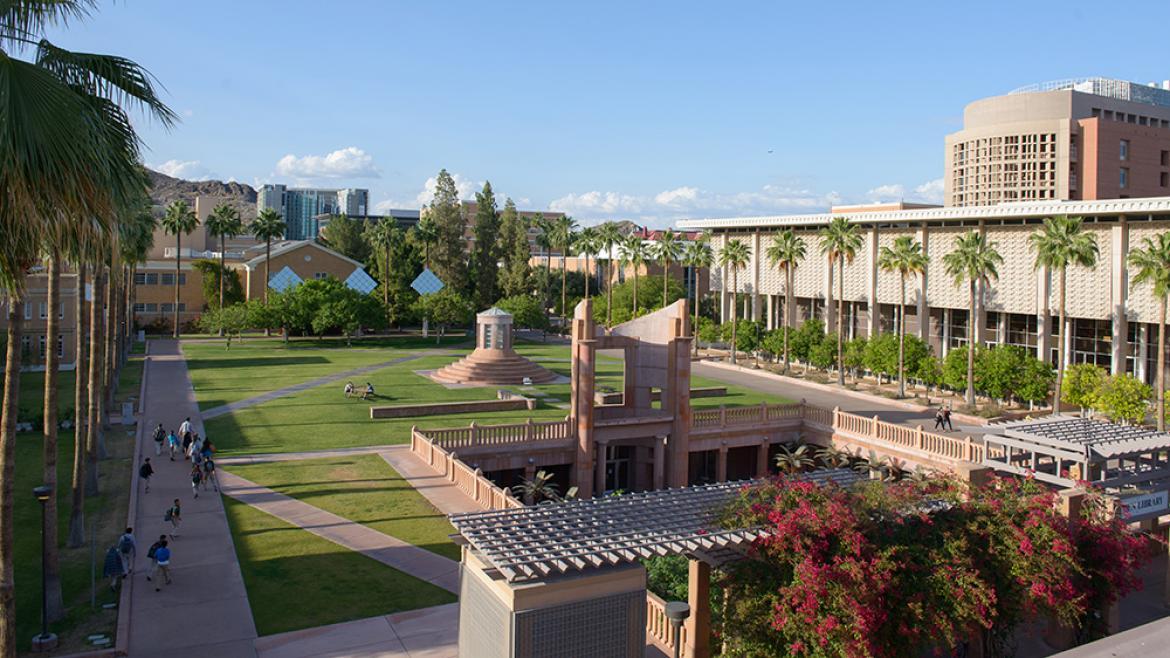Featured Sponsors
"Speaking the Unspeakable" would not be possible without the support of our sponsors. We are extremely grateful for their help to make this event possible! Please join us in thanking the following organizations:
(Click on the organization names to learn more.)
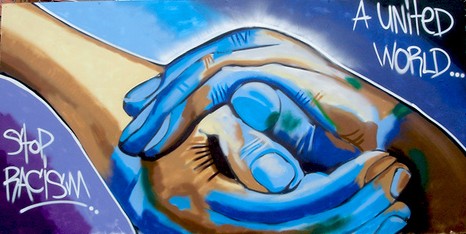
While racism is often popularly understood as explicit bias epitomized by Jim Crow-era segregation and the use of racial slurs, for over 20 years scholars have argued that the New Racism is characterized by structural inequality, colorblindness, and racially coded words and phrases. Critically, investigations of racism today focus not just on formal legal policies or the overt use of denigrating language, but also on the ways in which language is used to occlude or make legible racial inequality.
“Speaking the Unspeakable” will examine how race and racial inequality are structured, experienced, and felt through the languages of colorblindness, racism, and antiracism. Here, we recognize that language informs social policy and everyday existence:
- How do we talk about or avoid talking about race?
- How are conversations and ideas of race manifested materially?
- What are the emotional or felt impacts of verbal and nonverbal racial communication?
This two-day conference will bring together scholars, community experts, students, and public-service providers for interactive workshops, panels, roundtables, and more. Learn more by exploring each of the tabs on this page.
Keynotes
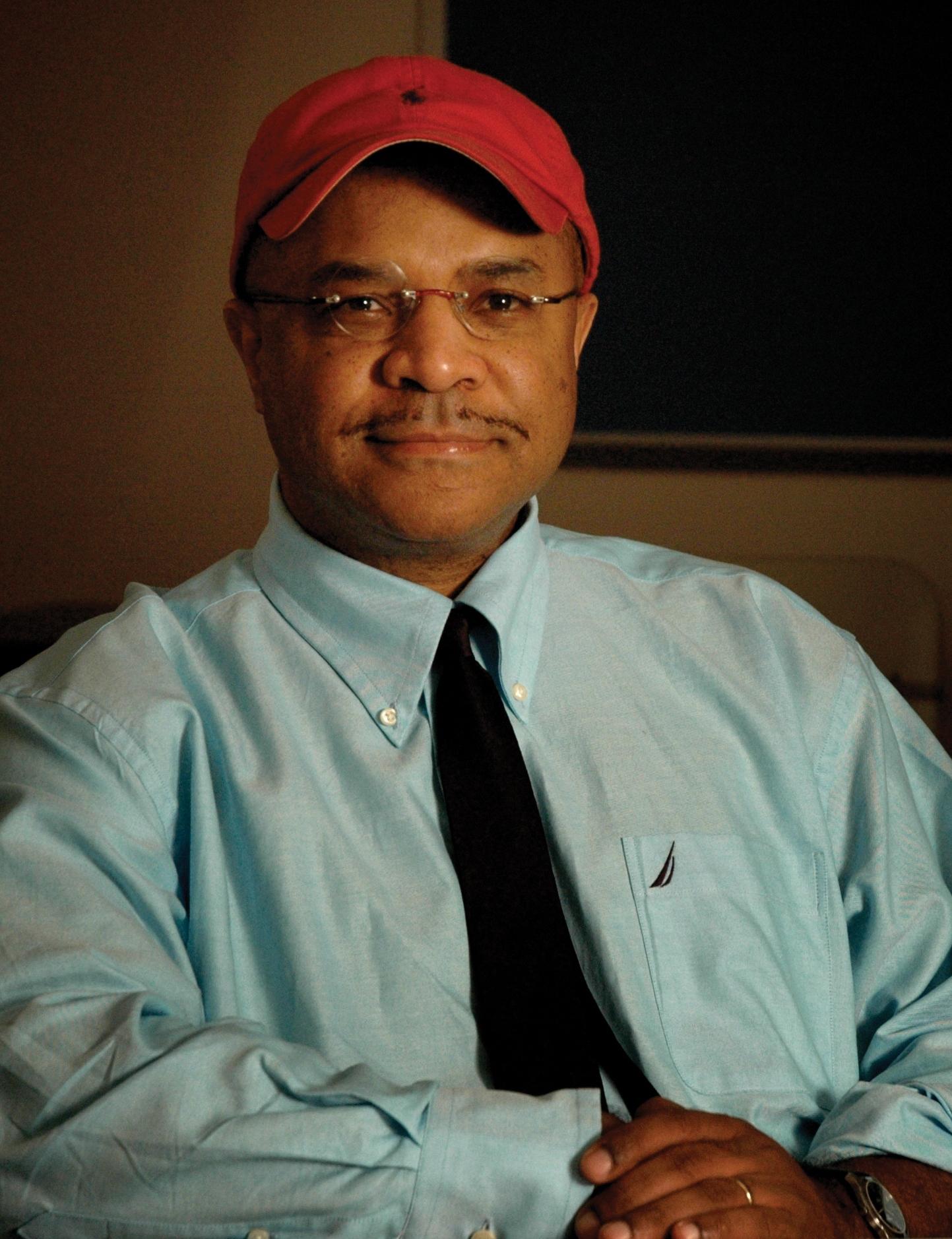
George Yancy, Ph.D.
Professor, Department of Philosophy, Emory University
Philosophy of Race Book Series Editor, Lexington Books
“Removing the Mask of Whiteness”
Friday, February 17, 2017 | 5:00 p.m. – 7:00 p.m.
Memorial Union (MU), Room 230 (Pima)
Whiteness, Yancy argues, is a site of fragility. It is also a site that has a binary structure. In other words, the logic of whiteness needs the other, the Black, the wretched, the damned. So, whiteness has a parasitic relational structure. If this is so, Black people will function as a site of pain and suffering, the sub-persons, the ontologically needed and yet paradoxically discarded and disposable. Hence, Yancy contends that what is necessary is what Baldwin calls a loss of white identity. Yancy argues that to go down this path, whites must be vulnerable, which means that whites must be prepared to face the structural emptiness of whiteness and begin to undo their complicity with white power and white privilege. Here Yancy pulls from his work regarding white opacity and white un-suturing. At the end of the day, we need to envision what it would look like for whites to live in a state of rage against white power and white privilege and begin to create conditions for this rage.
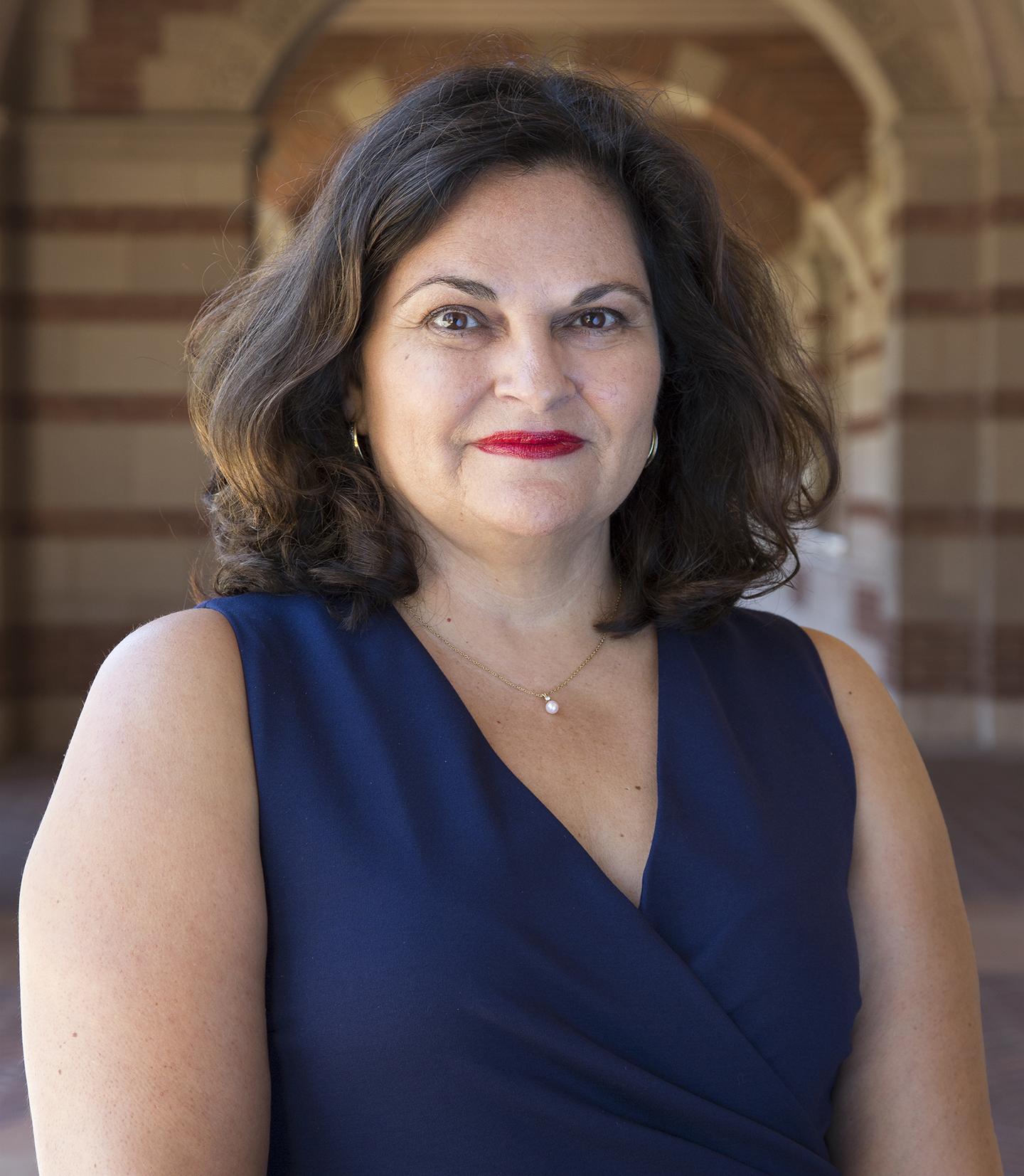
Laura E. Gómez, Ph.D.
Interim Dean, Division of Social Sciences
Professor of Law
University of California, Los Angeles
“On the Continuing Relevance of History: Manifest Destiny, Racism and Nation-Building in the Present”
Saturday, February 18, 2017 | 5:00 p.m. – 7:00 p.m.
Memorial Union (MU), Room 230 (Pima)
More than ever, all Americans should be aware of the long and rich history of Mexican Americans and the complex position of the original Mexican Americans who negotiated their place in both the regional and national racial landscapes of the late 19th century. Anyone who hopes to understand the dramatic and unstoppable demographic shift that is changing the U.S. from a majority-white to a majority-minority nation, where whites will become a minority compared to Latinos, African Americans, Asian Americans, Native Americans, and those who claim a multi-racial identity must grapple with this racial history in order to make sense of the present and future racial order. This history—detailed in the new edition of Manifest Destinies: the Making of the Mexican American Race, to be released in 2017—must be the starting point for thinking about social policies that will move us forward as a nation in ways that allow for the full incorporation of Latinos. Rather than repeat the mistakes of the past, we must understand how we got here in order to move forward in a way that seeks to perfect our national promise of equality and civic incorporation of all Americans. My comments will explore contemporary racial politics that have played out in the past decade—from the pro-immigrant rallies of 2006 that blocked immigration legislation, to enforcement of local and state anti-immigrant laws like Arizona’s SB1070, and in some senses culminating in one of the most divisive presidential elections in American history, in which Mexican Americans played a leading role. What lessons do these events hold for how race and racism have changed and where Latinos fit in the new racial order?
Schedule
**Schedule is subject to change
Friday, February 17, 2017
8:00 a.m. - 11:00 a.m.
Conference Registration
| ASU Memorial Union (MU) | Room 229 (Santa Cruz) |
Conference Sessions
9:00 a.m. – 10:30 a.m.
Session 1.1: Dismantling the School-to-Prison Pipeline | MU 230 (Pima)
| Moderator: Lauren Jones Panelists: Reginald Bolding Tracey Lopeman, Ed.D. Alessandra Soler |
National Counsel, Civil Rights Anti-Defamation League (ADL) State Representative, District 27 Arizona House of Representatives Exeutive Director, Alahambra Elementary School District Executive Director American Civil Liberties Union (ACLU) |
Session 1.2: Racism/Sexism: It’s an Issue for Everyone | MU 224 (Gila)
| Workshop Facilitators: Gerae Peten, Ed.D. Dianne Post |
Ret. School Superintendent; Founder of Sankofa Group, LLC Coordinator, Central Arizona National Lawyers Guild Legislative Liaison, State NOW |
Session 1.3: Speaking and Teaching the Unspeakable: Race and Education | MU 226 (Graham)
| Chair/Moderator: Christina Saidy, Ph.D. Panelists: Shane Kraus Stuart Rhoden, Ph.D. Sarah Risha, Ph.D. |
Assistant Professor, Department of English Arizona State University “On the Rhetoric of Diversity in the Academy: Co-Opting Disruption and Neutralizing Racial Marginality” Rhetoric, Composition and the Teaching of English, University of Arizona “Teaching Culture & Diversity in an Era of Campus being ‘Safe Spaces’” College of Integrative Sciences and Arts, Arizona State University “Unconscious Racism” School of International Languages and Literatures, Arizona State University |
10:45 a.m. - 12:15 p.m.
Session 2.1: “Quit Tryin’ to Act”: High School Students Becoming Comfortable with Who They Are
MU 230 (Pima)
| Moderator: Samantha Gorgan Presenting Members: Dulce Corona Chloe Enero Savanna Ghaleb Quine Gualue Alondra Hernandez Denise Mosso |
English Teacher and Feminist Club Sponsor La Joya Community High School Feminist Club La Joya Community High School |
Session 2.2: LBGTQ+ Migrant and People of Color Intersections | MU 224 (Gila)
| Workshop Facilitators: Dago Bailón Dora Mejía |
Trans Queer Pueblo |
Session 2.3: Speaking Racialization and Multiracial Identities | MU 226 (Graham)
| Moderator: Matthew Delmont, Ph.D Panelists: Victoria Baugh Donald Guillory Ruth Lucas Charlotte Marshall |
Professor, School of History, Philosophy, and Religious Studies Arizona State Univeristy “The Need to Teach Race in Jane Austen" Graduate Student, Department of English Arizona State University “Racial Tokenism" Instructor, College of Integrative Sciences & Arts Arizona State University “Prejudice Within,” Lucas Seminars "Identity Assignment: Inaccuracy and Cultural Genocide in the Criminal Justice System" Criminal Justice, Weber State University |
1:15 p.m. - 2:45 p.m.
Session 3.1: Opening Space: A Conversation on Race and Youth Theater | MU 230 (Pima)
| Moderator: Kathy Nakagawa, Ph.D. Panelists: Ricky Araiza Chris Hamby Shamirrah Hill, M.A. Christina Marin, Ph.D. Meribeth Reeves Xanthia Angel Walker |
Associate Professor, School of Social Transformation, Arizona State University Artistic Director, Teatro Bravo President, ariZoni Theatre Awards of Excellence Black Youth Theatre Program Educator/Performer/Director/Scholar/International Practitioner, Theatre of the Oppressed Managing Artistic Director, Desert Foothills Theater Co-founding Artistic Director, Rising Youth Theatre |
Session 3.2: Environmental Racism and Street Theater Performance | MU 226 (Graham)
| Workshop Facilitator: Masavi Perea |
Program Director Chispa Arizona (part of the League of Conservation Voters) |
Session 3.3: Speaking Histories of Race | MU 224 (Gila)
| Moderator: Tracy Fessenden, Ph.D. Panelists: Michael Calderón-Zaks, Ph.D. J. Eugene Clay, Ph.D. Keith Miller, Ph.D. |
Associate Professor, School of History, Philosophy, and Religious Studies Arizona State University “Is 2016 the new 1916? The Trumpian Train Whistle in Perspective" Instructor, Sociology, Santa Monica College “Race and Religion in Arizona during the Great War: The Case of the Russian Molokans" Associate Professor School of Historical, Philosophical, & Religious Studies Arizona State University “How to Eliminate Race by Fantasizing a Teddy Bear: The Process of Composing The Autobiography of Malcolm X" Professor, Department of English, Arizona State University |
3:00 p.m. - 4:30 p.m.
Session 4.1: Racialized Knowing: an unsession | MU 227 (Pinal)
| Facilitators: Travis Cronin, MSW Sujey Vega, Ph.D. |
Graduate Student, School of Social Work Arizona State University Assistant Professor, School of Social Transformation Arizona State University |
Session 4.2: Theorizing Race and Coloniality | MU 224 (Gila)
| Moderator: Travis Franks Panelists: José Moreno, Ph.D. Jale Tumay, Ph.D. Nishant Upadhyay, Ph.D. |
Graduate Teaching Associate, Department of English Arizona State University “The Culture of Empire: The Imagined Community of the Concepts of Colorblindness, Racism, and Antiracism in American Cultural Production and Society” Lecturer, Ethnic Studies, Northern Arizona University “Construction of Enemy in Nazi Propaganda: Discursive Strategies for Creation of Illusionary Reality" Department of English, Arizona State University “Raciality, Indigeneity, and Coloniality: A Triangulated Analysis" Lecturer, Women and Gender Studies, Northern Arizona University |
5 p.m. - 7 p.m.
Session 5: Removing the Mask of Whiteness | MU 230 (Pima)
| Keynote Speaker: George Yancy, Ph.D. |
Professor, Department of Philisophy, Emory University Philosophy of Race Book Series Editor, Lexington Books Full presentation description on the Keynotes page |
Saturday, February 18, 2017
8:00 a.m. - 11:00 a.m.
Conference Registration
| ASU Memorial Union (MU) | Room 229 (Santa Cruz) |
Conference Sessions
9:00 a.m. – 10:30 a.m.
Session 6.1: Not an Undergraduate, Not Yet a Professor: The Experiences of Women of Color Graduate Students on a Predominantly White Campus | MU 224 (Gila)
| Moderator: Karen Leong, Ph.D. Graduate Student Panelists: Onyekachi Ekeogu Julia Gutierrez, MA De’Shay Thomas Gabriella Zewdu-Habte |
Associate Professor, Women and Gender Studies, Asian Pacific American Studies School of Social Transformation, Arizona State University Justice and Social Inquiry, Arizona State University Gender Studies, Arizona State University School of Social Work, Arizona State University Women and Gender Studies, Arizona State University |
Session 6.2: Race in Visual and Literary Texts | MU 226 (Graham)
| Moderator: Lee Bebout, Ph.D. Panelists: Jason Bryant Travis Franks Silvia Rodriguez Vega, Ed.M. |
Associate Professor, Department of English Arizona State University “Down Here in Nowhere: Materialist Ethics in Citizen’s Nonidentity" Instructor, Department of English, Arizona State University "This ain't what it looks like, mister': Imagining Fugitive Poses after the Great Comanche Raid." Graduate Teaching Associate, Department of English Arizona State University "Chupacabras: The Myth of the Bad Immigrant" Cesar E. Chavez Department of Chicana/o Studies University of California Los Angeles |
Session 6.3: Whiteness Norms Distilled from 18 Recent Studies | MU 225 (Yuma)
| Panelists: Jennifer L.S. Chandler, Ph.D. Kristin D. Elwood L. Marie Wallace, Ph.D. |
Lecturer, Leadership and Interdisciplinary Studies College of Integrative Science and Arts Arizona State University Graduate Student, Learning, Literacies, and Technologies Mary Lou Fulton Teachers College, Arizona State University Leadership and Interdisciplinary Studies College of Integrative Science and Arts, Arizona State University |
10:45 a.m. - 12:15 p.m.
Session 7.1: Changing Language of Civil Rights Advocacy in Arizona | MU 224 (Gila)
| Chair: Christine Marín, Ph.D. Panelists: Nancy Godoy Robert Spindler |
Emeritus Professor; Archivist/Historian Department of Archives and Special Collections Hayden Library, Arizona State University Assistant Archivist Chicano Research Collection, Arizona State University Administrator & Archivist Archives & Special Collections, Arizona State University |
Session 7.2: Intersectioned. Identity. | MU 226 (Graham)
| Moderator: Rashad Shabazz, Ph.D. Presenters: Marco Piña Joel Salcido Rashaad Thomas |
Associate Professor, School of Social Transformation Arizona State University A poetry reading and discussion Gutta' Collective |
Session 7.3: Bullying and Race: an unsession | MU 225 (Yuma)
| Facilitators: David Carlson, Ed.D. Becky Ladd, Ph.D. Keon McGuire, Ph.D. |
Associate Professor, Mary Lou Fulton Teachers College Arizona State University Professor T. Denny Sanford School of Social and Family Dynamics Arizona State University Assistant Professor, Mary Lou Fulton Teachers College Arizona State University |
1:15 p.m. - 2:45 p.m.
Session 8.1: Narritivizing the Felt Impact of Racism and White Privilege Across Community Based and Academic Spaces | MU 224 (Gila)
| Moderator: Grant Walsh-Haines Panelists: Lori Bable Liz Rabago Rose Tederous |
Personalized Learning, Liberal Arts, Northern Arizona University James E. Rogers College of Law, University of Arizona Chief Operations Officer, YWCA of Southern Arizona Family Resource Wellness Coordinator Amphitheater School District |
Session 8.2: The Arts, Race, and Rebellion: Artists in Action | MU 230 (Pima)
| Moderator: Mary Stephens Presenters: Lizbett Benge Elisa Gonzales Chaz Salazar |
Producing Director, Peformance in the Borderlands Herberger Institute for Design & the Arts, Arizona State University Teaching Associate, Women and Gender Studies Arizona State University Co-Founder of ¡Habla! AZ! Graduate Student, Theater Performance, Arizona State University Graduate Student, School of Music, Arizona State University |
Session 8.3: Social Pedagogies of Racialization | MU 226 (Graham)
| Moderator: Lisa Anderson, Ph.D. Panelists: Jeremy Omori Jason Michael Lukasik, Ph.D. & Jennifer A. Sandlin, Ph.D. Nathan Snaza, Ph.D. & Jennifer A. Sandlin, Ph.D. |
Faculty Head & Associate Professor School of Social Transformation, Arizona State University Graduate Student, Arizona State University “Where We Stand: Reexamining Social Pedagogy in North America” Assistant Professor, Augsburg College Associate Professor, Justice and Social Inquiry School of Social Transformation, Arizona State University “Caged/Raced Pedagogies: Disney’s Animal Kingdom, Affect, and Colonial Legacy" Director, Bridge to Success Program Department of English, University of Richmond “State Violence and Racial Affect in Disney’s Zootopia" |
3 p.m. - 4:30 p.m.
Session 9.1: Exhaling an Ache: A Reading and Conversation | MU 230 (Pima)
| Poetry & Prose Panelists: Aria Curtis Sue Hyon Bae Susan Nguyen Dustin Pearson Joel Salcido |
Graduate Students Creative Writing, Arizona State University |
5 p.m. - 7 p.m.
Session 10: “On the Continuing Relevance of History: Manifest Destiny, Racism and Nation-Building in the Present” | MU 230 (Pima)
| Keynote Speaker: Laura E. Gómez, Ph.D. |
Interim Dean, Division of Social Sciences Professor of Law, University of California, Los Angeles Full presentation description on the Keynotes page |
Travel & Hotel
Location:
Arizona State University
Tempe, Arizona 85281
Arizona State University's Tempe campus is an urban campus located in the heart of Tempe, near the Phoenix Sky Harbor Airport and is minutes from Downtown Phoenix. ASU Tempe is arranged around broad pedestrian malls and is completely encompassed by an arboretum. To learn more about ASU, visit http://asu.edu.
Driving Directions:
ASU's Tempe campus is easily accessible from the AZ Loop 202 - Red Mountain Freeway. For driving directions, click on the map button below and then select "Directions."
Hotel:
Graduate Hotel
225 E. Apache Blvd. | Tempe, AZ 85281
(480) 967-9731
Conference attendees will recieve a special conference rate at the Graduate. Please be sure to make your reservation early as the rate will expire on January 1, 2017.
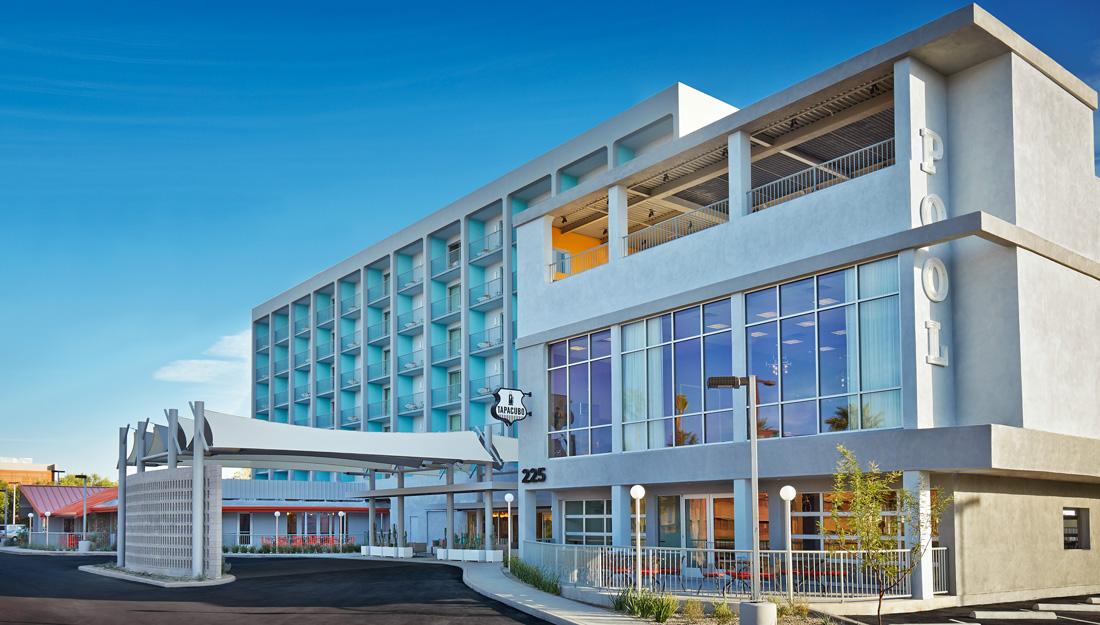
Air Travel
The Phoenix metorpoliatain area is supported by two airports, Phoenix Sky Harbor International Airport and Phoenix-Mesa Gateway. For more information, please click on the airport name.
